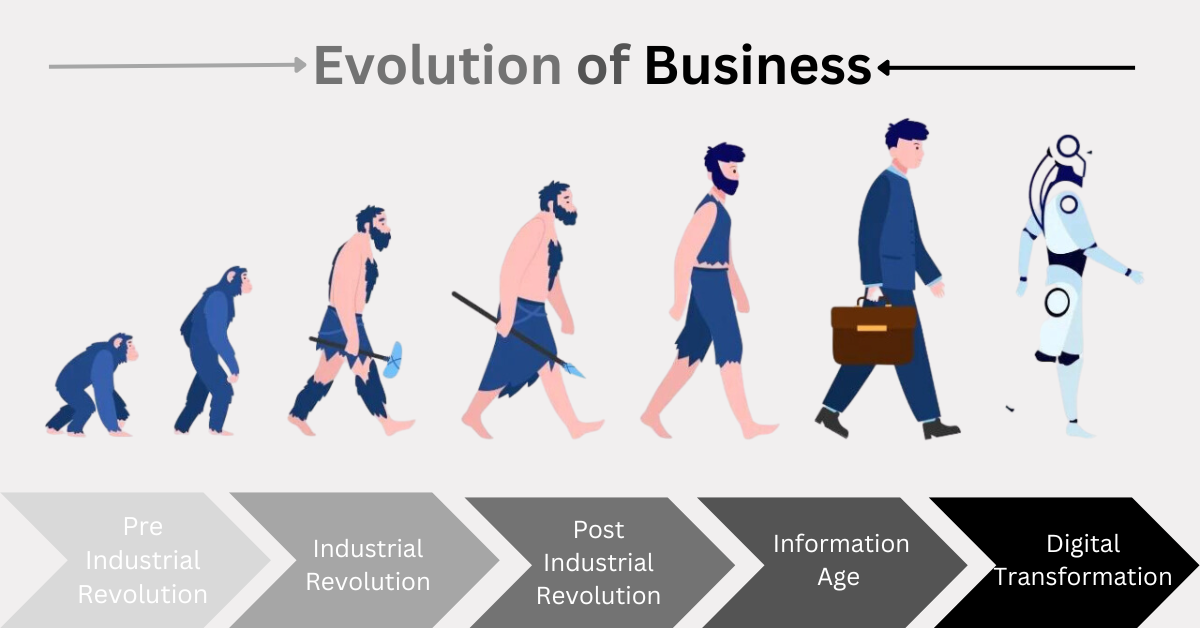Business management has evolved significantly over the years, transforming from rigid, traditional theories into more flexible, modern practices that reflect the dynamic nature of today’s global markets. With technological advancements, shifts in workforce dynamics, and the constant need for innovation, business management courses have also adapted to prepare future leaders for these changes. Understanding the evolution of business management is crucial for anyone looking to excel in leadership roles or pursue a career in management.
In this blog, we will explore the evolution of business management, highlighting key traditional theories and their progression towards modern practices and how business management courses have evolved to address these shifts.
Classical Management Theories
The origins of business management can be traced back to the Industrial Revolution, where the need for efficient production methods gave rise to early management theories. Classical management theories, such as those proposed by Frederick Taylor and Henri Fayol, were among the first to provide structured frameworks for managing workers and business operations.
- Frederick Taylor’s Scientific Management: Taylor’s theory emphasised productivity and efficiency by standardising work and time-motion studies. It focused on dividing tasks into smaller parts, training workers to perform them efficiently, and incentivising performance with financial rewards.
- Henri Fayol’s Administrative Theory: Fayol introduced five key management functions: planning, organising, commanding, coordinating, and controlling. His approach aimed at creating a systematic method for managing organisations and is still taught in many courses on business management today as a foundational theory.
The Human Relations Movement
As industries evolved and the workforce expanded, the limitations of classical management theories became apparent. In response, the human relations movement emerged in the early 20th century, shifting focus from task-oriented management to people-oriented leadership.
- Elton Mayo and the Hawthorne Studies: Elton Mayo’s famous Hawthorne experiments in the 1920s and 1930s revealed that social factors, such as employee morale and group dynamics, significantly impacted productivity. His findings paved the way for modern organisational behaviour theories, highlighting the importance of employee satisfaction, motivation, and teamwork.
- Maslow’s Hierarchy of Needs: Abraham’s theory of human motivation, particularly his hierarchy of needs, further influenced management thinking. It suggested that employees have various needs beyond just financial incentives, including psychological, social, and self-actualisation needs. Understanding and addressing these needs became essential for effective leadership.
The Rise of Systems and Contingency Approaches
By the mid-20th century, businesses were becoming increasingly complex, with managers facing challenges that required more adaptable and holistic approaches. This gave rise to the systems and contingency theories of management.
- Systems theory views an organisation as an interconnected system, where each department or function interacts with and affects the others. Instead of viewing business as a linear process, systems theory emphasises the interdependence of all aspects of the business. It encourages managers to look beyond isolated problems and address issues holistically, considering the impact of decisions across the entire organisation.
- Contingency Theory: The contingency theory of management posits that there is no one-size-fits-all approach to management. Instead, management practices should be contingent upon the specific circumstances, including the external environment, the nature of the workforce, and the business goals. This theory laid the foundation for more flexible and adaptive management practices that could respond to changing market conditions.
The Shift to Modern Management Practices
In recent decades, the rapid pace of technological advancements, globalisation, and changing workforce dynamics have driven the development of modern management practices. Today’s business environment demands agility, innovation, focus on sustainability and inclusivity, hence all the tips to accomplish these can be taken from an efficient Business Coach
- Agile and Lean Management: With the rise of the tech industry and global start-ups, agile and lean management practices have become increasingly popular. These practices emphasise flexibility, iterative progress, and continuous improvement, allowing businesses to adapt quickly to market demands and technological advancements.
- Emphasis on Corporate Social Responsibility (CSR): Modern management also emphasises corporate social responsibility and sustainability. Businesses are increasingly held accountable not only for their financial performance but also for their environmental and social impact. As a result, management practices now include strategies for ethical decision-making, sustainable growth, and stakeholder engagement.
Digital Transformation and Data-Driven Management
In the 21st century, digital transformation has redefined the way businesses operate. Technologies like artificial intelligence, big data analytics, and cloud computing have revolutionised business processes, from marketing and customer service to supply chain management and decision-making.
- Data-Driven Decision-Making: Modern businesses rely heavily on data to drive decisions and improve efficiency. Business management courses now teach leaders to analyse and leverage data to make informed, strategic decisions that enhance business performance.
- Technological Integration: As technology evolves, integrating new tools and platforms into business operations has become a critical management component. Leaders must understand how to implement digital solutions that streamline processes, improve communication, and enhance department productivity.
Conclusion
The evolution of business management has been shaped by changing market conditions, technological advancements, and the growing recognition of the importance of human factors in organisational success. From the early classical theories to modern, flexible practices, management has progressed to meet the needs of a complex and rapidly changing global business environment.
Today’s business management courses incorporate lessons from both traditional theories and modern practices, equipping future leaders with the knowledge and skills they need to drive organisational success. Whether focusing on agility, innovation, or sustainability, these courses prepare professionals to adapt to the challenges of the modern business world and to lead their organisations with confidence and competence.
